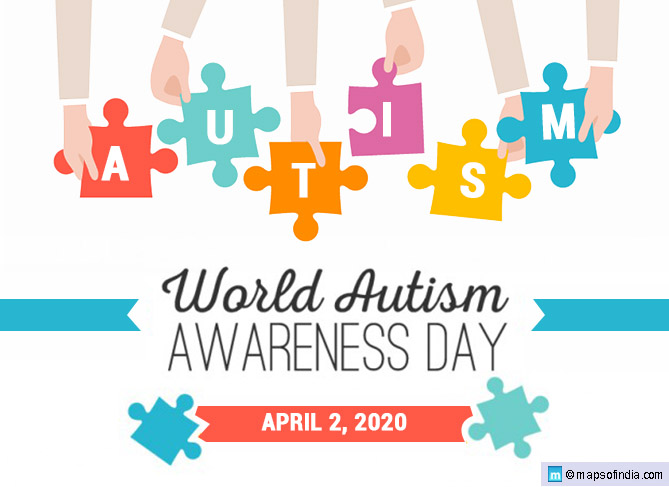World Autism Awareness Day (WAAD) is observed worldwide on April 2 every year to spread awareness and reduce the social gap with the people suffering from Autism Spectrum Disorder (ASD). Experts are not able to reveal the exact cause of autism but some research indicates that genetic and environmental factors are responsible for Autism Spectrum Disorder.
First observed in 2008
The day encourages autism organisations across the world to participate in various activities such as research, diagnoses, treatment, and accept those who are affected by this developmental disorder. This day was designated by the United Nations in 2007, first observed in 2008.
2020 theme “The Transition to Adulthood”
The theme of 2020 is “The Transition to Adulthood”. The transition from adolescence to adulthood is a boon or bane like situation for the life of the children. This period is full of risk if it is not handled carefully. During this phase special care is needed to the mentally challenged adolescence of the age group of 16 to 24 years. The age may differ. During this time their maturational and developmental conditions need to be monitored minutely.
Challenges for experts
A psychiatrist faces different kinds of difficulties as a professional in tackling the transition time. Currently, in many regions lack of experts’ hands, discontinuation rate of treatment and other factors put a negative impact on such children who are passing through the transitional phase.
Equal rights
People who are the victim of autism should have the right of self-determination, respect, independence like others. Persons with autism have the right to education and getting employment opportunities on an equal basis like others.
Sign of autism
Autism is a disease that affects the brain’s function and this disability remains with the person for his or her entire life. The sign of autism generally develops among the children at the age of three. Those who are suffering from this disorder face lots of difficulty in their everyday life such as-
- Social interaction becomes difficult for them.
- They have to face problems in verbal and non-verbal communication.
- Their behaviour becomes restrictive and repetitive.
- Their activities and interests remain limited.
Autism case on the rise
Autism can affect anyone but its impact is high on children. At present, it has been rising alarmingly globally. As per the National Health Interview Survey (NHIS), one out of 59 children has been the victim of Autism Spectrum Disorder (ASD) in the US which hampers a child’s social, emotional and behavioural development. This disorder has tripled in the last 15-year. Hence utmost care is needed to contain its increasing rate.
Parents have to take extra care for the children who have ASD such as-
- Maintain consistency
- Make a schedule
- Reward your child on his/her good behaviour
- Create a safety zone at your home
- Pay attention to nonverbal cues
- Decrease transitional tantrum
- Make fun with your child
- Need to pay attention to child’s sensory sensitivities
- Always remain calm
Several awareness events are organised on World Autism Awareness Day like-
- Panel discussions take place with autism experts and members of non-governmental organisations (NG)s) representatives.
- Workshops are organised in the presence of professionals working with autism people.
- Exhibitions and displays of posters, banners take place to create public awareness of autism.
- Special clinics are set up on this day so that the victims of the disorder may consult with paediatricians, educational psychologists, and social workers easily.
It is undeniable that people with Autism Spectrum Disorder (ASD) have to face social stigma, discrimination and human rights violations across the world and the help and support for such people is inadequate. As the COVID-19 has created havoc globally in this situation ASD disorder persons need extra attention and care so that their lives can be saved.
The World Health Organisation (WHO) has developed a parent skill training programme with the help of experts, parents’ associations and civil society organizations to take care of ASD persons.





